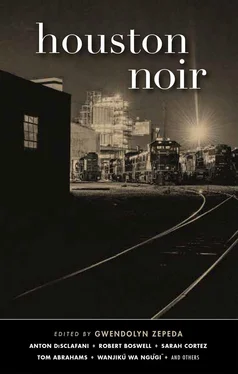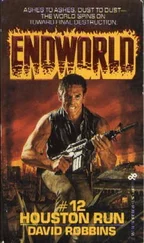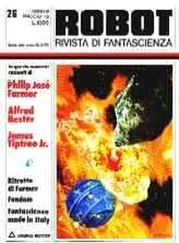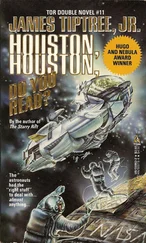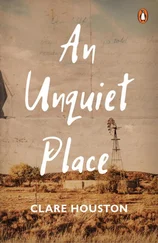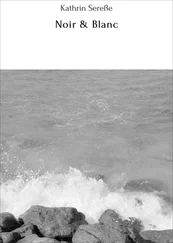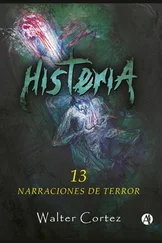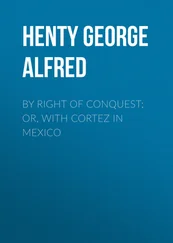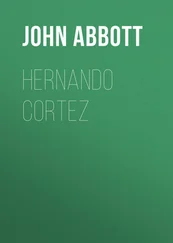Sarah Cortez - Houston Noir
Здесь есть возможность читать онлайн «Sarah Cortez - Houston Noir» весь текст электронной книги совершенно бесплатно (целиком полную версию без сокращений). В некоторых случаях можно слушать аудио, скачать через торрент в формате fb2 и присутствует краткое содержание. Город: New York, Год выпуска: 2019, ISBN: 2019, Издательство: Akashic Books, Жанр: Детектив, на английском языке. Описание произведения, (предисловие) а так же отзывы посетителей доступны на портале библиотеки ЛибКат.
- Название:Houston Noir
- Автор:
- Издательство:Akashic Books
- Жанр:
- Год:2019
- Город:New York
- ISBN:978-1-61775-706-8
- Рейтинг книги:3 / 5. Голосов: 1
-
Избранное:Добавить в избранное
- Отзывы:
-
Ваша оценка:
- 60
- 1
- 2
- 3
- 4
- 5
Houston Noir: краткое содержание, описание и аннотация
Предлагаем к чтению аннотацию, описание, краткое содержание или предисловие (зависит от того, что написал сам автор книги «Houston Noir»). Если вы не нашли необходимую информацию о книге — напишите в комментариях, мы постараемся отыскать её.
Houston Noir — читать онлайн бесплатно полную книгу (весь текст) целиком
Ниже представлен текст книги, разбитый по страницам. Система сохранения места последней прочитанной страницы, позволяет с удобством читать онлайн бесплатно книгу «Houston Noir», без необходимости каждый раз заново искать на чём Вы остановились. Поставьте закладку, и сможете в любой момент перейти на страницу, на которой закончили чтение.
Интервал:
Закладка:
See how straight my mother is standing? That strained smile. In every photo. That ugly wood paneling we thought was so modern. I showed him that photo once — our little family in the new den. Behind us, the gilt-edged rows of the World Book Encyclopedia stand at attention. He kissed me up the side of my face while extracting the photograph from my fingers. I’m your whole family now. Then he pushed me back on his bed and raised my skirt, lowering his lips to where they always went the second I was inside his room. I’m your everything, remember?
Yes, yes. I always said yes.
Oh, that was our dog at the new house — a hunting Lab for dad. He was a sweet dog — born during a norther in February at the first house. Four of the litter froze to death before we could get a heater into the garage for them. I got home first and could’ve saved them, but I was scared of the mewling puppies and couldn’t face the blood leaking everywhere in heavy clumps. So I didn’t go closer — just shut the wooden door and walked back to the house. I sat in the empty house listening to the sleet hit the windows. Too old for dolls, uninterested in reading books, I just sat in the kitchen watching the grayness outside. I didn’t call anyone for help.
One of the pups who survived became Dad’s. They spent a lot of time together on weekends — gone to the hunting lease. In the evenings, after work, Dad would toss a burlap dummy for the dog to retrieve in the narrow backyard of the new house. The dog always eager, no matter how many throws or how much slobber trailed down his glossy black fur. Dad was silent in the evenings, always silent by then.
This photo is back at our first house — the one we had to leave. Those flowerbeds were wrested from Houston’s famous black gumbo. Bright-headed hydrangeas, lavender and light blue, coaxed into bloom. Mom and I on our knees weeding every Saturday afternoon. There’s no photograph of Mom pulling weeds and crabgrass in her sweat-soaked pin curls. We only took pictures on Sundays, after church. That one day full of photogenic smiles and homemade pancakes, hot syrup and leisure. Even that one day ultimately wrecked, like all the others, by the cruising cars of men with two-by-fours and baseball bats.
The last Easter in our little house, in the front yard by the big picture window. Remember Jackie Kennedy and her color-coordinated pillboxes? Mom let me pick out a white one with a short veil. I still have it. The dress was also white. A square neckline showing my tanned collarbone. At thirteen, I had a collarbone like the First Lady’s — elegant, bones showing nicely. That’s what Mom said. She also said I was beautiful, but I knew it was the lie of a fond mother. Hopeful too. Above all else, hopeful. Boys your age are intimidated by your looks — that’s all. I was surprised when she said this. No one ever asked me out on a date, so she couldn’t be right.
I don’t remember posing for that Polaroid. It must’ve been taken by Pat, the girl who lived next door. She was a few years older than me. She loved to come over in the evenings with that camera while Mom fixed dinner. But this one was taken during the day. See, I’m holding a beach towel and leaning on the gray tiles of the kitchen bar. I tanned like it was a religion. Oiled and glistening, I became a long stretch of sweaty muscle. I remember being proud of my flat brown stomach. Green beans for dinner — that’s how I did it. Metrecal cookies at lunch — nine of them in a packet of crisp cellophane. For days on end.
Here’s another one of the front yard, from farther away. That other picture window was the dining room where I did homework every night in grade school, until Dad said I had to sit in the kitchen, farther back in the house. The phone calls were bad then. The blacks wanted us out. Threats in a deep bass voice: We gonna burn you out. We coming tonight. Mom didn’t cry, not that I saw. But every meal was ushered in by her urgent questions: Had any For Sale signs appeared on our block? Had I been threatened walking to or from school? What were the next door neighbors doing? Hard-eyed, Dad promised we wouldn’t sell. He promised. I kept quiet at dinner and lingered in other rooms whenever the telephone rang. The one time I heard a man’s voice full of hatred was enough — his voice reverberating inside my bones, permeating the marrow. It was a thick voice, full of intention and spite. I put the phone into its heavy black cradle slowly, so he wouldn’t know I was scared. No point to crying. No one had answers to the questions I could barely think clearly enough to ask, but that always hung in the air: Why do you hate us? What have we done wrong?
That one is out of order. Me, a fat baby. I look like my dad’s father — bald, same shape of head. See how I’m straining toward the edge, off the gray countertop? I knew what I was doing; I wanted to step off. Bright air would hold me — I was sure of it.
In the background of this photo, you can see a large picture window, off-center to the left. My first bedroom to myself. A reward for turning thirteen. It hurt to grow breasts, remember? That embarrassing growth of new hair that felt every breath of breeze, every sashay of fabric across its light-brown fineness.
From the front yard, you can’t see the gardenia bush, tall as a man on the side of our little house, just beyond my screen windows. At night, in early summer, the scent as heavy as a wrestler on my chest. White waxy flowers fragrant enough to eat, whispering all their secrets into humid air. The night’s friendships between creatures of earth and grass, air, and bayous were heard in a long murmur of comforting sounds. I missed that in the new house — the sound of night. A/C shut off everything.
Mother’s mahogany vanity in our little house. The curved front and large round mirror. I’d wait for impenetrable darkness in my still bedroom, decorated in my favorite colors — a splurge after turning thirteen. June bugs crawling on the screens, gardenias outside spreading their white lips. My hands on my breasts and nipples eventually became his hands. I’d raise my baby dolls and throw off the sheets. Dream his lips, recall his blue eyes. Shame, the greatest catalyst; and the forbidden geometry of a grown man, the most irresistible attraction on earth.
That’s Mom’s brand-new Olds in the driveway. My dad only bought Oldsmobiles, and he only bought green ones. I stopped by a hardware store on Telephone Road to get the keys copied. Then I hid them in the piano bench. Every time we ate dinner, I waited for my mom to ask me why I had an extra set of her car keys. After all, she handed me her only set to drive to school when I needed them. I couldn’t figure out a good lie. The only truth I knew was his mouth on the mess of fine hair he loved. A ceaseless tongue.
Yeah, that’s my new school, after we moved. A tedious commute through Houston’s small Downtown, then west, out 59 South. We’d just left our little house. Found a newly built one farther out. Cute freshman beanie, huh? For those days, twenty-three miles each way to high school was long. I did okay at first, but then I started failing. Me, the honor roll kid, failing: algebra I, world history, and British lit. Mandatory tutoring after school — I couldn’t see him on the way home anymore. Mom arranged carpools with older girls, so I could stay late at school. Pecan Waffles winked at me in red neon along Caroline every afternoon as I sailed past in some preoccupied upper classman’s car. I dug fingernails into my palms so I couldn’t feel what I was feeling. His window was always open, one panel of limp curtain hanging out into Downtown’s exhaust fumes. Those seniors were all in love with serious boyfriends they only saw on the weekends — we were an all-girls school. We sang along with the Beach Boys on the radio, and I pretended my ideal boyfriend would be a surfer like them — blond, cute, plenty of freckles, and tiki-god cool.
Читать дальшеИнтервал:
Закладка:
Похожие книги на «Houston Noir»
Представляем Вашему вниманию похожие книги на «Houston Noir» списком для выбора. Мы отобрали схожую по названию и смыслу литературу в надежде предоставить читателям больше вариантов отыскать новые, интересные, ещё непрочитанные произведения.
Обсуждение, отзывы о книге «Houston Noir» и просто собственные мнения читателей. Оставьте ваши комментарии, напишите, что Вы думаете о произведении, его смысле или главных героях. Укажите что конкретно понравилось, а что нет, и почему Вы так считаете.
